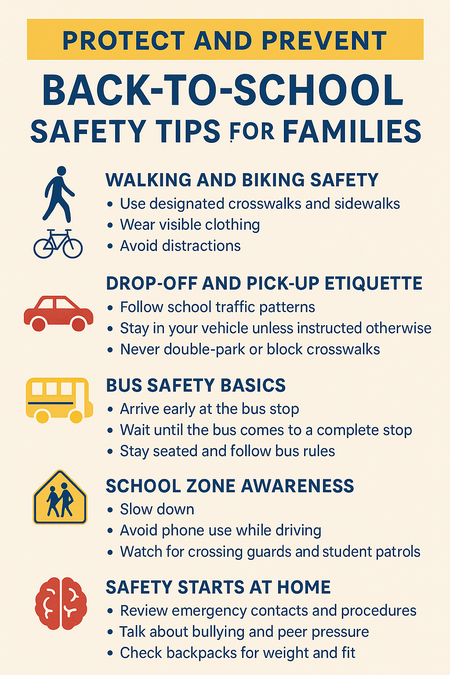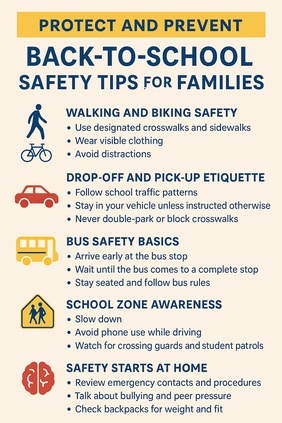As students across the Westside return to school, families are encouraged to take a few extra steps to ensure a safe and smooth start to the academic year. Whether children walk, bike, ride the bus, or get dropped off by car, small precautions can make a big difference.
Walking and Biking Safety
- Use designated crosswalks and sidewalks. Teach children to cross streets at marked intersections and obey pedestrian signals.
- Wear visible clothing. Bright colors and reflective gear help drivers see students, especially during early morning hours.
- Avoid distractions. Phones and headphones should be put away while walking or biking near traffic.
Drop-Off and Pick-Up Etiquette
- Follow school traffic patterns. Most campuses have designated lanes and procedures—stick to them to avoid confusion and accidents.
- Stay in your vehicle unless instructed otherwise. Quick drop-offs keep traffic flowing and reduce congestion.
- Never double-park or block crosswalks. These actions endanger students and
Bus Safety Basics
- Arrive early at the bus stop. Rushing can lead to unsafe behavior near traffic.
- Wait until the bus comes to a complete stop. Students should board only when signaled by the driver.
- Stay seated and follow bus rules. Good behavior helps drivers focus on the road.
School Zone Awareness
- Slow down. Speed limits are reduced near schools for a reason—children can be unpredictable.
- Avoid phone use while driving. Hands-free isn’t always distraction-free. Stay focused.
- Watch for crossing guards and student patrols. Respect their signals and give them space to operate safely.
Safety Starts at Home
- Review emergency contacts and procedures. Make sure your child knows who to call and what to do in case of an emergency.
- Talk about bullying and peer pressure. Encourage open communication and let kids know they can come to you with concerns.
- Check backpacks for weight and fit. A heavy or poorly fitted backpack can cause strain and discomfort.
Back-to-school season is a fresh start—and a great time to reinforce habits that protect students, families, and the broader community. A little planning goes a long way.




